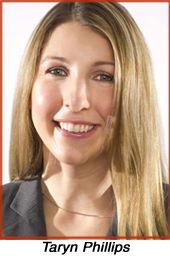BJ Handles
Tough Questions Too
 If
you want to get a smart, accurate and up to the minute view of things
from a bona fide all cargo pro who understands every aspect of the air
transportation business, just spend a few minutes with John Batten,
Executive Vice President at Swissport. If
you want to get a smart, accurate and up to the minute view of things
from a bona fide all cargo pro who understands every aspect of the air
transportation business, just spend a few minutes with John Batten,
Executive Vice President at Swissport.
Having been on almost every side of the
transportation business, BJ is a really smart guy who is better than
good; he is great in sharing and building air cargo in every way.
So much for the build up.
Here we wonder what’s up next and
likely to happen in the future in this wide-ranging conversation.
“As we get into May 2011, so far,
so good, but you never know what is around the corner.
“What is clear in my mind is that
I have the right team in place to react to whatever the world throws
at us next.
“I think many in the industry realize
that the events of 2008/2009 had some positive effects too.
“Everyone was forced to review his
or her businesses to the smallest detail.
“As a result my business is leaner,
more effective and more efficient.
“I also have more customers than
ever before.
In recent times we have had to deal with
global financial meltdown, political instability, weather issues, health
epidemics, the ash cloud and many more. “Every challenge has been
met, and every time we learn how we would do it better next time.
“What will come next may well be
something new, but I am sure myself and my team can deal with it.
“That helps me sleep well at night.
“Trends are another thing as they
at least remain unclear at this point.
“Global financial stability has
not returned.
“Political instability has curtailed
some of our expansion plans temporarily.
“The oil price remains volatile.
Airline mergers and alliances continue. Security legislation remains
fluid and inharmonious, which creates difficulties in providing the
right level of service at the optimal cost when everyone interprets
policy differently and all want to lead.
“Within Swissport, we will continue
to introduce innovation and technology to help move our business forward.
“We support C2K and e-freight and
are working hard to ensure we spread the message. Both initiatives are
not widely understood and that stifles progress and adoption.
“The e-AWB is also in this category,
so that is on our agenda too.
“We are also supporting some of
the more innovative airlines in developing best practice, network-wide
quality and customized handling programs, specifically designed for
their operation.
“Standard Swissport Quality is important,
but as a service provider we must also be able to accommodate the differentiation
that our customers want us to deliver on their behalf.
“I am happy to see GACAG in place
and hope that the engagement of more parties can bring good results.
“We still do not have strong representation
for Ground/Cargo Handlers so this remains a work in progress, but we
are working on it.
“This week in Munich my top priority
is to meet as many people as possible, new and old.
“Let them know what we are doing
and get open and honest feedback on how we are doing.
“Within Swissport, my biggest priority
is to keep improving what we do and how we do it.
We have made great progress so far, but
the work never ends.
“This year will be very interesting
for Swissport with our Management Information System (MIS) platform
now operational.
“This takes all the drivers of our
business such as costs, revenues, productivity, tonnages, and incidents
and gives us an entire suite of KPI’s as an output.
“For the first time, my managers
will have timely and transparent information to let them run the business
the way I want them too.
“My sales team can extract performance
reports and discuss them with the customer within the Customer Relationship
Management (CRM) set up, which we launched last year.
“We can see trends, good or bad,
and react to them much more quickly than ever.
“It really will be the ‘Steering
Wheel’ my team will use to run the business, and will deliver
more safety, more quality and more efficiency.
“In general, all regions are growing,
but remember that the tonnages have come from a low base in 2009.
“For Swissport, Africa is strongly
driven by imports. Latin America is growing well, again driven by imports.
“Europe had a very strong March,
but was weaker in April.
“Similarly, North America was also
very strong in March and less so in April. Asia has definitely been
impacted of late, so the incident in Japan and cost of fuel has made
a difference.
“But one area that gets top priority
is security.
“At an operational level we obviously
implement all directives and legislation as they come into force.
“What we are doing is that which
is within our control, and there are a number of changes in 2011.
“Firstly, we see that we need much
closer engagement with the regulators.
“We have a lot of experience to
share and with a closer relationship we will be able to react to changes
in processes much better.
“It is clear that security requirements
will always change, with new solutions to new threats, but we want to
work more closely with equipment providers to try and ‘future-proof’
their equipment more effectively, either by way of new financing initiatives
or the ability to have technical upgrades.
“The investment in security technology
we make is considerable and I do not want to have a situation where
I have non-compliant equipment that was purchased brand new just 3 months
previously.
“Broadly speaking, while everyone
is trying to work together on security, communication could still be
better.
“We are working with a major airline
to improve this area as it could improve for the sake of the industry.
“Some organizations rely on the
Carrier to pass on information to the Ground Handler, which does work
but can take a few days and in some instances it is interpreted differently,
making it difficult to implement.
“As a Global GHA, handling all the
major airlines in at least one location, I would prefer direct engagement
with the regulators.”
Finally we asked BJ to describe his proudest
achievement at Swissport and he (characteristically) replied:
“For our people, I believe Swissport
is a better company to work for than it was.
I think our service is better and our
customers are happier.
“Awards recognizing our abilities
are nice things to have, but we must never forget it is our people that
make Swissport what it is.
“I prefer happy staff and happy
customers over getting awards, but I am very happy to have all three!
“To our customers that means every
contract we agree upon is supported by a Service Level Agreement.
“This allows us to deal in facts
when measuring performance.
“It also allows us to accommodate
any customer-specific services that are required.
“On top of that I take my role as
the boss seriously.
“My reputation is only as good as
the service we deliver and I make sure I speak with as many customers
as possible to remain close to our operations.
“In saying this, things do go wrong
and correcting them is a priority which everybody at Swissport takes
seriously.”
Geoffrey/Flossie
|


